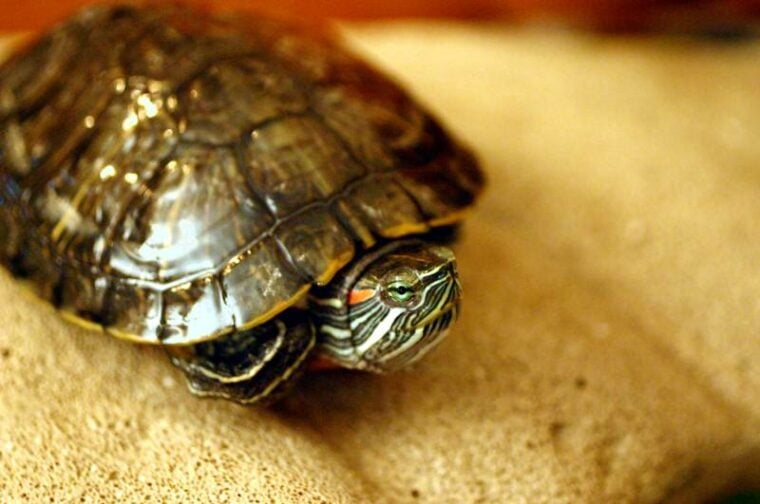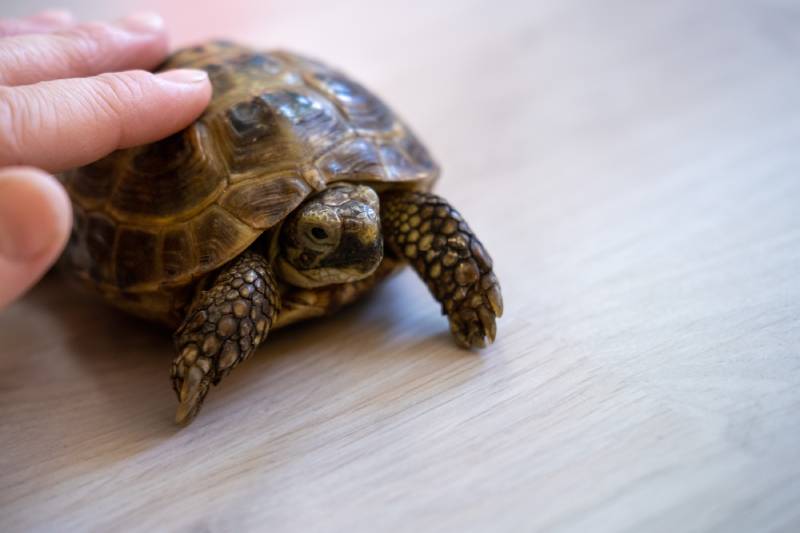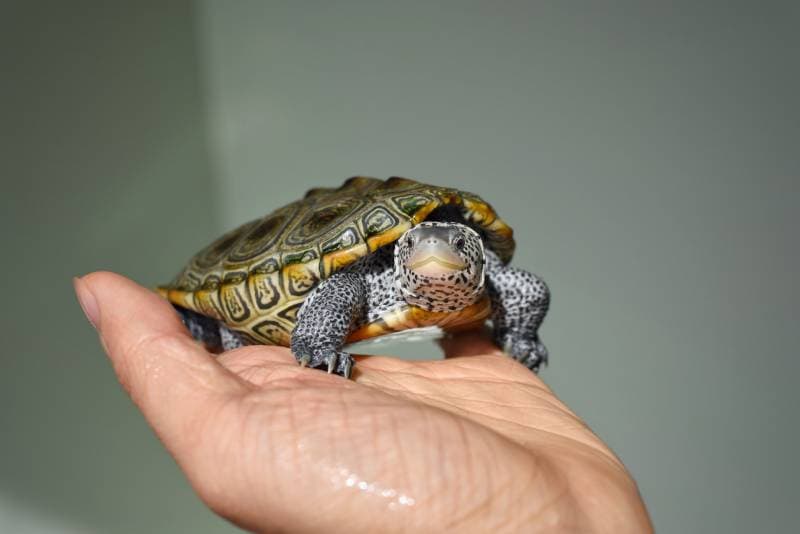
Turtles are amazing creatures that have been around for roughly 230 million years. Many cultural beliefs are linked to turtles, with many believing turtles bring luck, strength, longevity, and hope. Turtles are also symbolic; they represent different themes, such as wisdom, protection, stability, and patience.
Many of these beliefs are based on myths, legends, and cultural traditions and have been deeply rooted for centuries. Some cultures even regard turtles as carrying a sacred significance. As far as luck, many cultures believe turtles bring good luck and a wealth of other positive elements. Let’s explore this topic more in-depth.

Why Are Turtles Considered Good Luck?
Turtles have many coveted traits that we, as humans, simply lack. For instance, turtles move about slowly and have great patience, unlike humans in this fast-paced world. Turtles also have incredibly long lifespans, representing longevity—some cultures believe that keeping a turtle figurine in their home will extend their lives.
Turtles are peace-loving animals with a distinctive lifestyle. They carry large shells on their backs, which to many cultures, represents great strength. As for wisdom, one gains much wisdom with years of living, and turtles are capable of living exceptionally long lives. Turtles are also patient and can withstand hardships throughout their lives.

The Feng Shui Turtle
Turtle symbolism is deeply rooted in different cultures. In ancient Chinese culture, feng shui, also called Chinese geomancy, is a traditional practice based on the arrangement of buildings, objects, and space in an environment to achieve harmony and balance. This harmony and balance is accomplished by strategically considering the arrangement of a room, what you bring in, and how you maintain the space.
Feng shui also uses inanimate objects of four celestial animals or “guardians” explicitly placed in a space to achieve harmony and balance to bring about peace and prosperity: the green dragon, the white tiger, the red phoenix, and the black tortoise (in Chinese culture, turtle and tortoise are used interchangeably).
The turtle is one of the most sacred symbols in feng shui. According to Chinese beliefs, to achieve harmony and balance, one must place the inanimate objects as follows: the black tortoise to the north, the white tiger to the east, the red phoenix to the south, and the green dragon to the west. Turtles are to represent the element of water in feng shui, which is one of five elements of life. The other elements are wood, fire, earth, and metal.
Types of Feng Shui Turtles
If you’re not looking to practice feng shui, you can place an inanimate turtle anywhere in your home or garden for good luck and prosperity; you can even buy a turtle charm to wear around your neck if you wish.
These turtles can be made of different materials, but they all serve different purposes depending on the type of material. Here are some examples of materials, where to place them, and the benefits. Let’s break them down:
| Material | Placement | Benefits |
| Jade | The eastern part of the home | Good luck, prosperity, and longevity |
| Glass | Southwest or northwest direction of the room | Good luck, prosperity, and longevity |
| Metal | Northwest corner of the room | Good luck, protection against negative energy |
| Stone | Western direction underneath the bed | Good luck, money, and peace |
| Wood | East or southeast of home | Good luck, positive energy |
| Clay | Southwest corner of the home | Improves financial situations and health |
The Native American Culture and Turtles
Chinese culture is not the only culture that believes in turtle luck. To Native American tribes, the turtle symbolizes Mother Earth, which they believe teaches you to walk your path peacefully. The turtle also represents spirituality, wisdom, longevity, health, safety, protection, and fertility to most tribes. The turtle’s shell also represents protection and perseverance. Some Native Americans even believe the turtle contributed to creation.
All Native American tribes have their own beliefs with only a few similarities, but they all have one thing in common: the turtle is held in high regard and is sacred.

How to Care for a Turtle
Now that you know turtles may bring good luck, you may be inclined to buy one to keep as a pet. Most pet turtles are aquatic or semi-aquatic, and if you do add a turtle to your family, here are some quick tips on how to keep your aquatic turtle healthy and happy.

Final Thoughts
While we cannot say that turtles bring good luck, it seems this legend has existed for many centuries and is still practiced today by different cultures. Turtles are unique creatures that have been around for millions of years, and that alone deserves respect. If you’re in need of some good luck, there is certainly no harm in placing a turtle figurine in your home or buying a real turtle as a pet.
If you decide to buy a pet turtle, ensure you learn how to properly care for the turtle to keep him happy, safe, and healthy.
Featured Image Credit: Travel-Fr, Shutterstock







